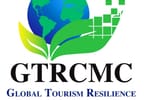Happy New Year – a series of rules and regulations kick in that could affect your vacation. Ignore them, and you might find yourself delayed or denied access to your destination.
No, really.
Last year, when new travel document requirements went into effect, the government was quickly overwhelmed by passport applications. One of them came from Martin Mitchell, an Air Force major who sent a passport renewal in April but still hadn’t received a new passport by mid-July. With less than two weeks to go before a planned trip, he contacted me.
“I read that you have contacts with the State Department,” he wrote in an e-mail. “I would appreciate if you could act on my behalf to try and shake loose my application.”
Well, I did have a few names, and with their help, Mitchell managed to get his passport renewed in time.
Not everyone was so lucky. Christine Simmons and her husband applied for passports after booking a vacation through Expedia in January.
But by early March, just days before her trip, her husband still didn’t have his paperwork – although, for some reason, she did.
“Please help!” she wrote in an e-mail. I phoned the State Department, and it was able to find the passport. It arrived a day after they were supposed to leave – “a dollar short and a day late,” she says.
Fortunately, Expedia allowed her to change her dates after paying a rebooking fee, so all wasn’t lost.
Don’t let that happen to you. Here are four new rules you need to know:
1. Passports will be mandatory for all border crossings. On June 1, the U.S. government will implement the full requirements of the land and sea phase of the Western Hemisphere Travel Initiative (http://travel.state.gov/travel/cbpmc/cbpmc_2223.html). That means U.S. citizens entering the United States at sea or land ports must either have a passport, passport card, or WHTI-compliant document. It’s a major – and long-anticipated – change from the current rules, under which you can cross the border with either a passport, a passport card, or a government-issued photo ID, such as a driver’s license, along with proof of citizenship, such as a birth certificate.
Susan Tanzman, president or Martin Travel & Tours, a Los Angeles travel agency, is advising her clients to get their passports early.
“If they have a trip after the beginning of the new year, I tell them they need a passport,” she says. Why the rush? Tanzman, who is also a lawyer, remembers the last passport crisis, and doesn’t want her travelers caught in the middle of a possible sequel. That’s sound advice. Applications made in January and February typically get processed within two weeks, she says. After that, who knows?
2. Airlines must quote a total price for tickets. The European Parliament last year approved a new “transparency” rule mandating that airfares have to include all taxes, fees and charges added to the basic ticket price and known at the time of publication.
The rule took effect in November, according to the EU. At least theoretically, that should mean no more unpleasant surprises when you buy a ticket for travel within Europe or to Europe. Under the rule, airfare or air rate, taxes, airport and other charges, surcharges or fees, such as those related to security or fuel, have to be included in the price of the ticket.
And any optional price supplements must be communicated in “a clear, transparent and unambiguous way at the start of any booking process” and allow passengers to opt-in for them, according to the EU.
Stanley Gyoshev (www.elliott.org/blog/want-an-all-inclusive-airline-ticket-price-then-sign-this-petition-now), a cofounder of the online travel site Lessno.com, was one of the key proponents of the change. He says there are two reasons why American air carriers may have no choice but to adopt these transparency rules, too.
“For one, the federal government could increase consumer protection by using laws relating to unfair advertising – by insisting that airlines only advertise products and pricing which is readily available to the traveler without undue restrictions and red tape,” he told me.
“The second is that since major international airlines are selling tickets in Europe, they will need to comply with the EU regulations. Since they need to make consumer-friendly changes to their European Web sites and advertising, we are hoping there will be some carry-over to the U.S. sites.”
3. Visas go paperless. The Department of Homeland Security’s new Electronic System for Travel Authorization will become mandatory on Jan. 12. It’s a fully-automated, electronic system for screening passengers before they begin travel to the United States under the Visa Waiver Program.
(The Visa Waiver Program allows nationals of 27 countries to travel to the United States for tourism or business for stays of 90 days or less without a visa.)
It’s still unclear how this will affect Americans traveling to one of the countries who participate in the Visa Waiver Program. Last summer, EU ministers expressed misgivings about parts of the program, and it is possible that traveling to one of those countries may involve answering more questions and a different (and possibly confusing) application process.
Travel lawyer Al Anolik says he expects “some retribution” against American travelers, if not for the ESTA, then for fingerprinting and eye-scanning inbound visitors to the United States – a practice he expects to see more of this year. “I don’t think it will deter people from traveling,” he says, adding that the time needed to complete a biometric scan “won’t add that much” to a traveler’s time spent at customs and immigration.
4. Passengers get a bill of rights – maybe. In response to increasing consumer frustration over flight delays, the state of New York enacted the New York State Passenger Bill of Rights in 2007. It required provision of fresh air, waste removal, and adequate food and water for passengers on flights delayed by more than three hours. Although the law was struck down by a federal appeals court in the spring, that decision has been appealed, and it may become law this year or later.
Jeff Miller, a travel-industry lawyer based in Columbia, Md., says the bill of rights stands a good chance of being upheld by New York’s Court of Appeals. “But one way or another,” he adds, “I think this is going to go to the Supreme Court.” If that happens, New York won’t have a passenger bill until 2011, at the earliest. But the chances of such a law being enforced at the national level are reasonably good, according to observers who say either airlines would have to adopt the same standards nationwide, or that other states would pass New York-style laws. Either way, that’s good for passengers.
WHAT TO TAKE AWAY FROM THIS ARTICLE:
- Change from the current rules, under which you can cross the border with either a passport, a passport card, or a government-issued photo ID, such as a driver’s license, along with proof of citizenship, such as a birth certificate.
- Under the rule, airfare or air rate, taxes, airport and other charges, surcharges or fees, such as those related to security or fuel, have to be included in the price of the ticket.
- Tanzman, who is also a lawyer, remembers the last passport crisis, and doesn’t want her travelers caught in the middle of a possible sequel.






















